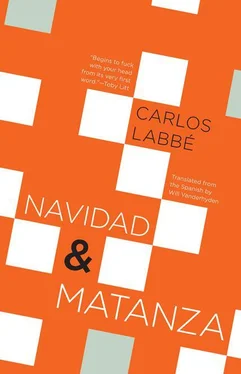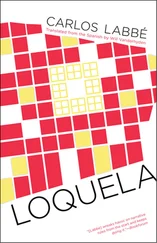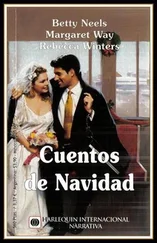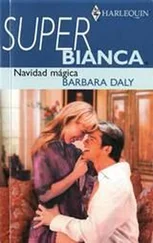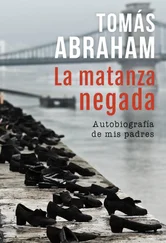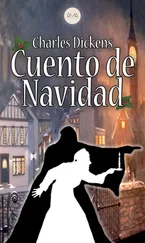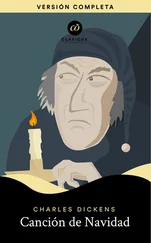The interview was scheduled for a Friday at seven in the evening so the whole family could be there. We arrived — the photographer and I — a little early to their residence in Los Dominicos; we picked it out by the imposing grey wall that surrounded it. We buzzed the intercom and were received and asked to wait by the butler, a man of refined manners whose nose was so small that at first glance he appeared not to have one. This detail is not trivial. Soon the mistress of the house, señora Teresa Elena, whom we’d met previously, arrived. She gave instructions to the butler; she called him Bonito. The first surprise was the nose-less Bonito’s response to her instructions; he let out a low laugh, murmuring: I don’t believe you, you filthy sow, and off he went, disappearing down the stairs. In that moment, I expected a scene to unfold: the woman firing Bonito, bemoaning the lack of respect, getting all flustered. But nothing happened. The man wasn’t just a butler, as I found out later. Señora Terelenita, as her friends called her, was distracted for a moment. Then she shook our hands again and left us alone.
We should’ve waited, as they requested, in that hallway adorned with oil paintings of English hunting scenes and illustrations of bad golf jokes. But it just so happened that my coworker needed to use the bathroom. His situation was so urgent that, instead of calling the butler for assistance, he decided to go look for it on his own. Meanwhile, I stood looking out at the home’s vast estate through the thick glass that served as a wall in the entrance hallway. The house dropped three stories, completely covering the eastern slope of the hill. I noted the care with which the trees had been planted along the other side of the hill to the north, bordering a grassy brown pathway that, from the height where I was standing, I saw intersect another pathway, defined by a variety of grasses in differing shades of green. In the middle of this lushness, I caught sight of two figures. A beautiful young woman, dressed in a bikini, walked out through the trees that concealed the swimming pool. She was short with long hair falling down her back. She held a striped towel in her right hand. In her other hand, she carried another towel (or a robe). It was very white. So white that the reddish, almost black stain on one corner stood out starkly. Every so often she stopped and rubbed her eyes. I thought she was crying. But I was mistaken: later, in the living room, she would repeat this gesture, and her brother, holding her hand, would give her a light slap, saying: Stop it, to which she would respond, yawning: I’m sleepy. And then she would look at me maliciously so that I would stop staring at her. But there, standing in front of that large window, it looked like she was crying. I saw that the stain extended to her body, to her left leg, her left thigh. It must be blood, I thought. Her first period must have come unexpectedly and because of this she was in pain.
The other figure moved through the park from the southeast, along the brown grass pathway. It was difficult to tell who it was. At a glance it looked like a woman, judging by the dress, the jewelry, and the fashionable hairdo. But whoever it was walked in a distinct way, legs wide apart, which made me doubt, correctly, that it was señora Terelenita. Then the figure took off the wig and threw it in the bushes, the dress too, stashing it behind a lavish Georgian dollhouse, another station on that pathway of playthings. The figure wasn’t wearing a bra or panties. He laid down on the grass (it was clearly a man), naked, with a visible erection. It looked like he was carrying some sort of list in one hand. I imagined that it enumerated how many steps away the little girl was. After five steps she still hadn’t reached him, no: the garden’s sprinklers came on. All at once. The man’s naked body was soaked; he closed his eyes and pounded his fists on the grass like an impatient child. His erection shrunk. Soon the girl saw him. She wasn’t surprised, nor did she stop, instead she walked over and sat down next to him. The man, dripping wet, sat up and pulled her small body against his. She in a bikini, he naked.
It was hot and the grass was sopping. The scene struck me as sordid, especially witnessed through sheets and sheets of water shooting from sprinklers, like iridescent specters in front of the light. I shut my eyes and turned around. I didn’t know what to do: I’m not sure how I reacted, but suddenly I felt someone softly blowing on my eyelids. When I opened my eyes, scandalized, I saw that I was one step away from Bonito, the butler or whatever he was. He placed one hand on my shoulder and, with the other, offered me a glass of Coke. Calm down, he whispered. Alarmed, I stammered and pointed out the window, but he’d already disappeared. I brought the glass to my lips. There was no one outside. The girl’s towels had been left in a tangle on the grass and a Great Dane was pushing them with her nose toward an area underneath a birch tree occupied by another dollhouse, this one of Mediterranean style.
Soon my colleague, the photographer, came back, out of breath. He looked anxiously in all directions. You’re pale, he said to me. So are you, I replied. It wasn’t necessary to ask him anything; immediately he began his confused tale, which he described more than once as “a terrible error.” Looking for the bathroom, he’d come across a room where a hairless boy, lying in bed, was observing a large aquarium, which occupied more than half of one wall. According to the photographer, the “terrible error” had nothing to do with his own impertinence, but with what was inside the aquarium. They weren’t fish, though, in a way, they seemed to be: three little girls with long hair swam about without needing to come up for air. The three small sirens came together for a moment behind the glass, staring with curiosity at the unfamiliar man who’d just walked in. The photographer ran out into the hallway without being seen by the boy. Their faces, if you could’ve seen them. They were horrible. Expressionless, like all beings that live underwater, but they were little girls. Monsters, he’d just said when the butler reappeared in a doorway and said that the family was waiting in the living room. Unsettled as we were, we decided to finish the job as quickly as possible. I should add that I was more intrigued than afraid.
The interview lasted forty-five minutes. My companion took half a roll of photographs before excusing himself, saying he felt ill. He left the house and waited for me in the car. The Vivars were arranged on the couch so that a chimney and chandelier were also in the shot. They were a very affectionate family: Juan Francisco Vivar sat with his wife on his lap; Bruno — his head shaved — placed his right arm on his father’s back while holding his mother’s hand; Alicia rested her head on Bruno’s chest and he patted her lightly on the cheek. To my surprise, Bonito stayed, seated on the arm of the couch, twirling the girl’s long locks between his fingers. He even spoke occasionally. Discounting the excessive displays of mutual affection that I’d witnessed, the interview answered many of my questions. Juan Francisco Vivar’s hair was gelled, his hands well manicured. At one point, I noticed the sheen of moisture behind his ears: sprinkler water from the garden, I suspected. Although clearly Alicia seemed to be in another world (as adolescents generally are, I should add), she didn’t seem particularly unhappy. They even laughed together recounting an anecdote about sledding near the hot springs in Chillán. There was a kind of excessive sincerity in that family: it provoked feelings of anxiety. The mistress of the house gave me a strange look, something like a smile, when she walked me to the door, and recited the names of everyone living in the house: besides her children and husband there was the foreign cook and Violeta, the Great Dane. Bonito, pardon, Boris was also staying with them. The man with the strange nose was her brother.
Читать дальше
